How Trauma Shapes Our Relationships and Attachments
31 December 2024
When we think about trauma, we often focus on the immediate emotional and psychological toll it takes. But there's another, less obvious way trauma influences our lives: it shapes how we relate to others. Whether we realize it or not, trauma can profoundly impact our ability to form and maintain healthy relationships. It can twist our perceptions of trust, intimacy, and love, often without us even knowing.
So, how exactly does trauma shape our relationships and attachments? Let’s dive deep into the impact trauma has on our emotional responses, attachment styles, and relationship patterns.

Understanding Trauma: What Is It, Really?
Trauma isn’t just about surviving a catastrophic event. It’s any experience that overwhelms our capacity to cope. This could be physical abuse, emotional neglect, or even witnessing something traumatic happen to someone else. Trauma can leave behind deep emotional scars, and these scars often resurface in our relationships.Types of Trauma
Before we move forward, let’s break down some common types of trauma that can play a role in shaping our attachments.1. Acute Trauma: This stems from a single event, such as an accident or a sudden loss.
2. Chronic Trauma: This is repeated and prolonged, such as ongoing domestic abuse or bullying.
3. Complex Trauma: This involves exposure to varied and multiple traumatic events, often within the context of relationships (like childhood neglect or abuse).
Regardless of the type, trauma can alter the way we see the world and, more crucially, how we connect with others.

The Role of Attachment Styles
To understand how trauma shapes relationships, we first need to talk about attachment styles. Developed by psychologist John Bowlby, attachment theory suggests that our earliest relationships (usually with our caregivers) influence how we connect with others throughout life.The Four Attachment Styles
1. Secure Attachment: People with secure attachments generally feel comfortable forming close relationships. They trust others and believe that they deserve love.2. Avoidant Attachment: Individuals with avoidant attachment tend to distance themselves from emotional closeness. They may have learned early on that relying on others is dangerous or unreliable.
3. Anxious Attachment: Those with anxious attachment often crave closeness but fear abandonment. This creates a push-pull dynamic, where they need constant reassurance but are always on edge, fearing rejection.
4. Disorganized Attachment: This is the most complex. People with disorganized attachment often have conflicting desires for closeness and separation. Their relationships are marked by fear, unpredictability, and confusion.
Trauma can heavily influence which attachment style we develop. For instance, a person who experienced neglect in childhood may adopt an avoidant attachment style as a defense mechanism. Similarly, someone exposed to inconsistent caregiving might develop an anxious attachment style, always seeking validation but fearing it might disappear at any moment.
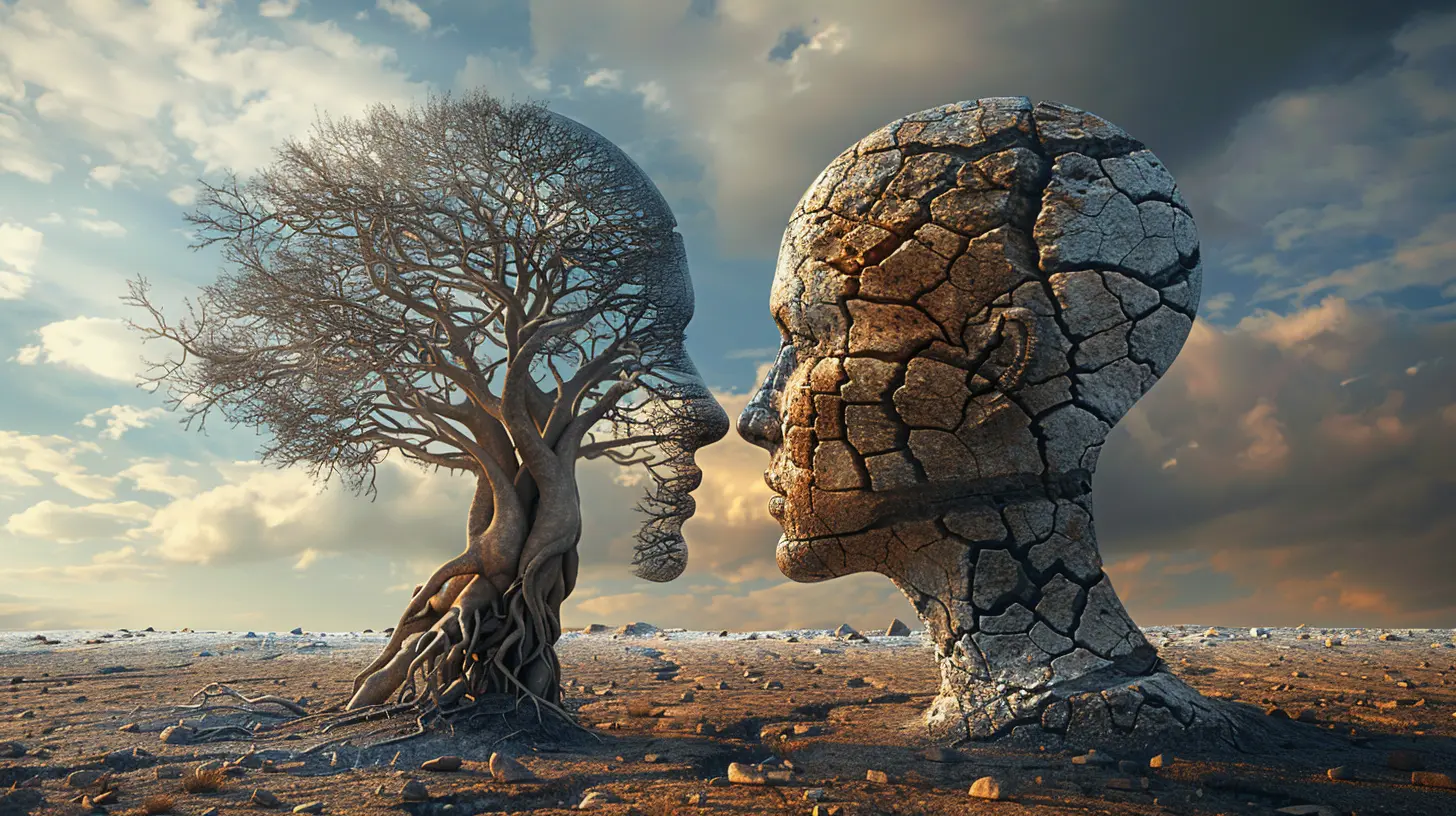
How Trauma Impacts Relationships
Trauma is like a ripple in a pond. It affects not only the person who experienced it but also the people around them, especially in intimate relationships. Let’s look at some of the ways trauma can shape how we connect with others.1. Difficulty Trusting Others
One of the most common aftereffects of trauma is difficulty in trusting others. When someone has been hurt—whether physically, emotionally, or both—they may struggle to believe that others have their best interests at heart.Think about it. If someone has been betrayed or abandoned in the past, it's only natural to build a wall around their heart. They might wonder, “If it happened once, what’s stopping it from happening again?” This constant vigilance can make it hard to fully invest in relationships, as the fear of being hurt again overshadows the potential for closeness.
2. Overreacting to Perceived Threats
Trauma can put our nervous systems on high alert. Even when there’s no real danger, a person who has experienced trauma may react as if there is. This is often referred to as being “triggered”—certain situations or behaviors can bring up painful memories, causing intense emotional reactions.For example, if someone has experienced emotional abuse, they might overreact to minor criticisms in a relationship. A simple disagreement could feel like an attack, triggering feelings of worthlessness or fear of abandonment. This can create a cycle where misunderstandings escalate into full-blown arguments.
3. Struggles With Emotional Intimacy
Emotional intimacy requires vulnerability, and for someone who’s been through trauma, vulnerability can feel terrifying. After all, trauma often teaches us that being open and vulnerable leads to pain.People who’ve experienced trauma might withdraw or shut down when things start to get too close. They may avoid talking about their feelings, distract themselves with work or other activities, or even push their partner away—consciously or unconsciously.
4. Reenacting Trauma in Relationships
Sometimes, people unknowingly recreate their trauma in relationships. This might sound strange, but it's a way the brain tries to make sense of what happened. It’s as if the mind is saying, “If I can relive this experience and have it turn out differently, maybe I can finally heal.”Unfortunately, this often leads to toxic or abusive relationship patterns. For example, someone who grew up in a household where love was conditional might repeatedly seek out partners who withhold affection, hoping they can “earn” love this time around.
5. Fear of Abandonment
Trauma, especially in childhood, can trigger an intense fear of abandonment. This is particularly common in individuals with an anxious attachment style. The fear of being left alone or rejected can result in clingy or needy behaviors, such as constantly seeking reassurance or feeling jealous of others.In relationships, this fear can manifest as insecurity, controlling behaviors, or even self-sabotage. Ironically, the very behaviors meant to keep a partner close can push them away, reinforcing the person's belief that they are unworthy of love.
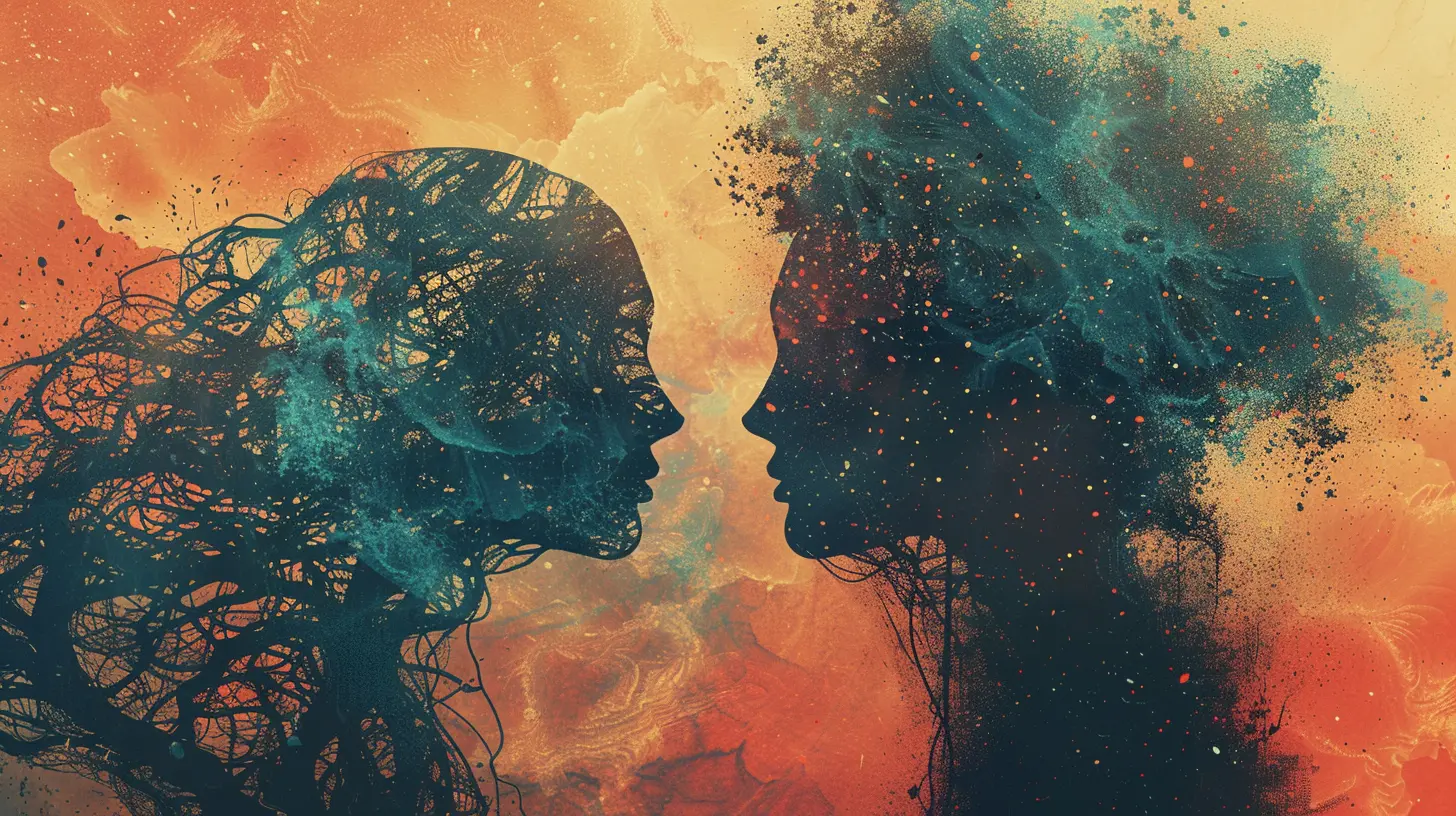
Healing From Trauma and Building Healthier Attachments
The good news? Healing is possible. While trauma might leave a mark on our relationships, it doesn’t have to define them. With time, effort, and professional support, it’s possible to move toward healthier, more secure connections.1. Awareness and Acknowledgment
The first step to healing is recognizing how trauma has impacted your relationships. This can be tricky because many of these behaviors happen unconsciously. But by reflecting on past relationship patterns and examining how you react to emotional closeness, you can start to identify where trauma might be playing a role.2. Therapy and Professional Support
Therapy, particularly modalities like Cognitive Behavioral Therapy (CBT) and Eye Movement Desensitization and Reprocessing (EMDR), can be incredibly effective in helping individuals process trauma. Working with a therapist allows you to revisit painful memories in a safe space, ultimately helping you develop healthier coping mechanisms.Additionally, couples therapy can be beneficial if trauma is impacting your relationship. It can provide a space to communicate openly, understand each other’s triggers, and develop strategies for fostering trust and intimacy.
3. Building Trust Gradually
If trust has been damaged by trauma, rebuilding it can take time. It’s important to remember that trust doesn’t happen overnight, and it’s okay to take things slow. Start by setting small, achievable goals for emotional openness. Over time, consistent positive experiences can help repair the trust that trauma disrupted.4. Practicing Vulnerability
Vulnerability can feel risky, especially if you’ve been hurt before. But practicing emotional openness in small doses can help you gradually build comfort with intimacy. Share your feelings with a trusted friend, express your needs in a relationship, or simply allow yourself to be emotionally present in moments of connection without immediately retreating.5. Self-Compassion
Lastly, be kind to yourself. Healing from trauma is not a linear process. There will be setbacks, and that’s okay. The key is to practice self-compassion and remind yourself that you’re doing the best you can with the tools you have.Conclusion: Trauma Doesn’t Have to Define Our Relationships
Trauma may shape our relationships, but it doesn't have to control them. By understanding how past experiences influence current attachment patterns, we gain the power to change. Healing is possible, and with support, patience, and self-awareness, we can move toward healthier, more fulfilling relationships.Remember, trauma might be a part of your story, but it doesn’t have to be the whole narrative. You have the opportunity to write new chapters—ones filled with trust, intimacy, and secure connections.
all images in this post were generated using AI tools
Category:
TraumaAuthor:

Janet Conrad
Discussion
rate this article
13 comments
Iliana Pruitt
Trauma profoundly impacts connection; healing requires intentional effort.
February 6, 2025 at 5:38 PM

Janet Conrad
Thank you for your insightful comment! You're absolutely right—healing from trauma is a deliberate journey that can significantly enhance our relationships and connections.
Zevin Edwards
Great insights! It’s amazing how understanding trauma can illuminate our relationship dynamics. Remember, healing is a journey, and every step forward is a triumph. Let’s embrace growth together—stronger connections await us all! Keep shining! ✨
February 1, 2025 at 4:15 AM

Janet Conrad
Thank you! I completely agree—understanding trauma is key to fostering healthier connections. Here’s to embracing our journeys of growth together! 🌟
Francesca McLain
Recognizing how trauma influences our relationships is the first step towards healing. By understanding and addressing these patterns, we can foster deeper connections and build healthier, more resilient bonds. You’ve got this!
January 29, 2025 at 4:23 PM

Janet Conrad
Thank you for your insightful comment! I completely agree—recognizing the impact of trauma is crucial for fostering healthy relationships and healing. Let’s continue to support each other on this journey.
Duke Taylor
Trauma deepens relational patterns.
January 25, 2025 at 4:02 PM

Janet Conrad
Absolutely, trauma can profoundly influence how we connect with others, often reinforcing unhealthy patterns. Recognizing and addressing these patterns is crucial for healing and building healthier relationships.
Quorra McQuillen
Great insights! Understanding trauma's effects on our relationships is key to healing. Let’s embrace our journeys and build stronger connections together! 🌟
January 21, 2025 at 5:47 PM

Janet Conrad
Thank you! I completely agree—embracing our journeys is essential for healing and fostering stronger connections. 🌼
Weston McGinnis
This article beautifully highlights the profound impact of trauma on our connections. Understanding this helps us heal and foster healthier relationships moving forward.
January 17, 2025 at 4:57 AM

Janet Conrad
Thank you for your insightful comment! I'm glad the article resonated with you and sheds light on such an important aspect of healing and relationships.
Lanae McWilliams
Trauma intricately weaves itself into the fabric of our relationships, shaping not only how we connect but also how we perceive intimacy and trust. By confronting our past wounds, we can begin to unravel these patterns, fostering deeper, more authentic connections in the present.
January 11, 2025 at 5:49 PM

Janet Conrad
Thank you for your insightful comment! I completely agree that confronting past traumas is essential for building deeper and more meaningful connections in our relationships.
Darrow Gray
This insightful article highlights the profound impact of trauma on our relationships. Understanding this connection can empower healing and foster healthier bonds. Keep exploring and growing!
January 7, 2025 at 5:21 AM

Janet Conrad
Thank you for your thoughtful comment! I'm glad you found the article insightful and impactful. Understanding trauma's role in our relationships is vital for healing and growth.
Faith Willis
Trauma and relationships: it’s like using a blender to make a smoothie—sometimes you end up with a delicious mix, and other times you’re just cleaning up the mess! Remember, if your attachment style were a dessert, would it be sticky toffee or a crumbly disaster?
January 4, 2025 at 3:53 AM

Janet Conrad
Great analogy! Just like desserts, our attachment styles can create sweet connections or messy situations. Understanding this dynamic can help us cultivate healthier relationships.
Ardent McEachern
Trauma profoundly affects our connections, often leading to trust issues and fear of intimacy. Understanding this impact is crucial for healing and building healthier relationships.
January 3, 2025 at 4:53 PM

Janet Conrad
Absolutely! Recognizing the effects of trauma on our relationships is essential for fostering healing and developing deeper connections. Thank you for your insightful comment!
Juliana Carey
Trauma: the unwanted plus-one at every emotional party. Can we uninvite it?
January 3, 2025 at 5:20 AM

Janet Conrad
Absolutely, while we may not fully uninvite trauma, we can learn to manage its presence and create healthier dynamics in our relationships. Healing is a journey that involves acknowledging trauma, fostering self-compassion, and building supportive connections.
Noelle Mendoza
“Such an insightful read! Understanding trauma’s impact on relationships is so essential.”
January 2, 2025 at 5:45 AM

Janet Conrad
Thank you! I'm glad you found it insightful. Understanding trauma is indeed crucial for fostering healthier relationships.
Amos Stewart
Trauma might be a sneaky backpack we carry, but with a little self-love and humor, we can turn those heavy loads into quirky accessories for better relationships!
January 1, 2025 at 4:38 PM

Janet Conrad
Absolutely! Embracing self-love and humor can transform our trauma into tools for growth, enriching our relationships in meaningful ways.
MORE POSTS
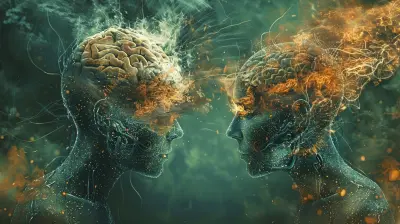
The Prefrontal Cortex and Self-Control: Mastering Impulses

Overcoming Trauma Triggers in Everyday Life

Building Social Skills in Children with Learning Disabilities

How to Approach Difficult Conversations with Your Partner

How to Help a Loved One Living with PTSD

Surviving a Traumatic Event: The Importance of Peer Support
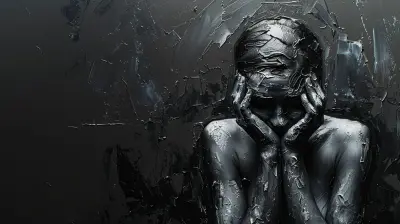
Trauma and Shame: Breaking the Silence

Mental Toughness at Work: How to Stay Resilient in a High-Pressure Job
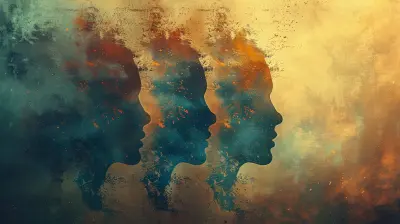
How Family Therapy Can Help Heal Generational Trauma